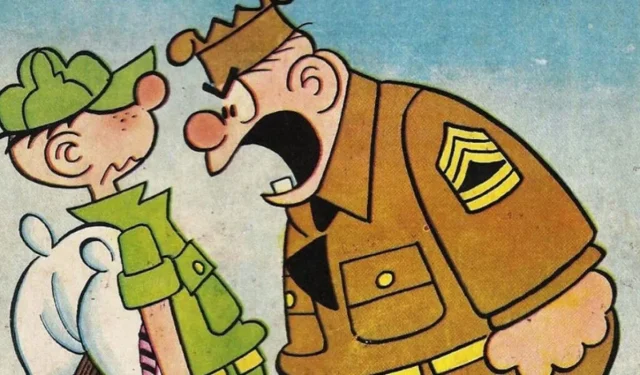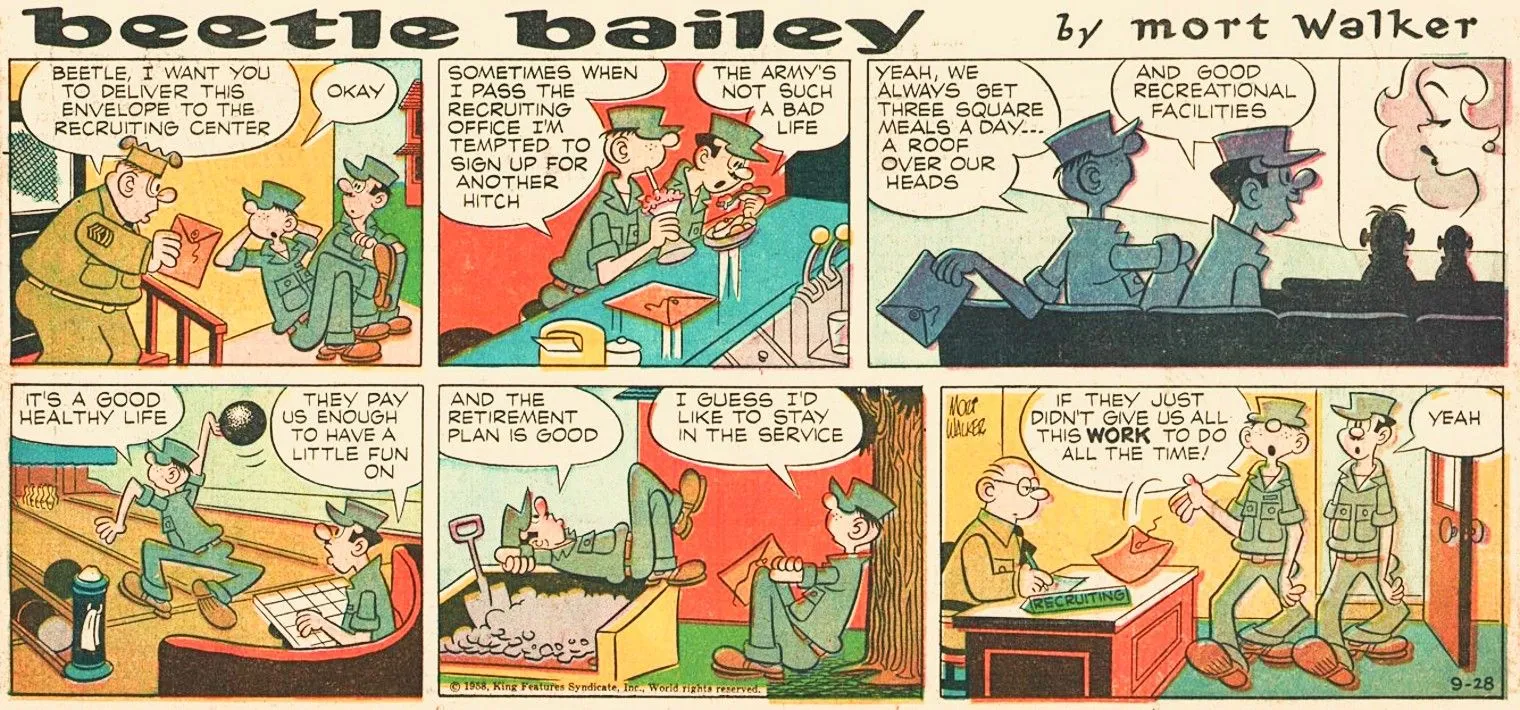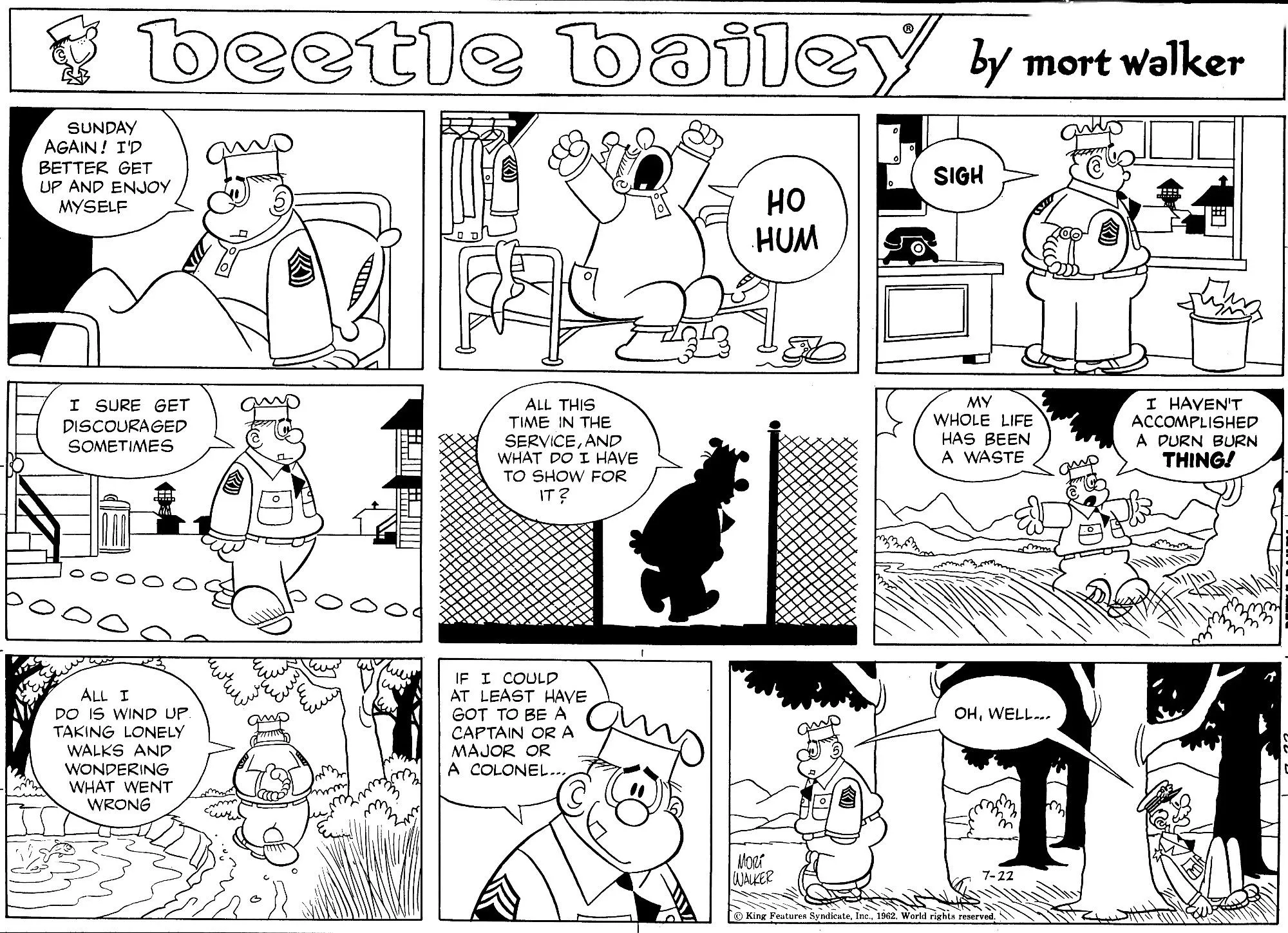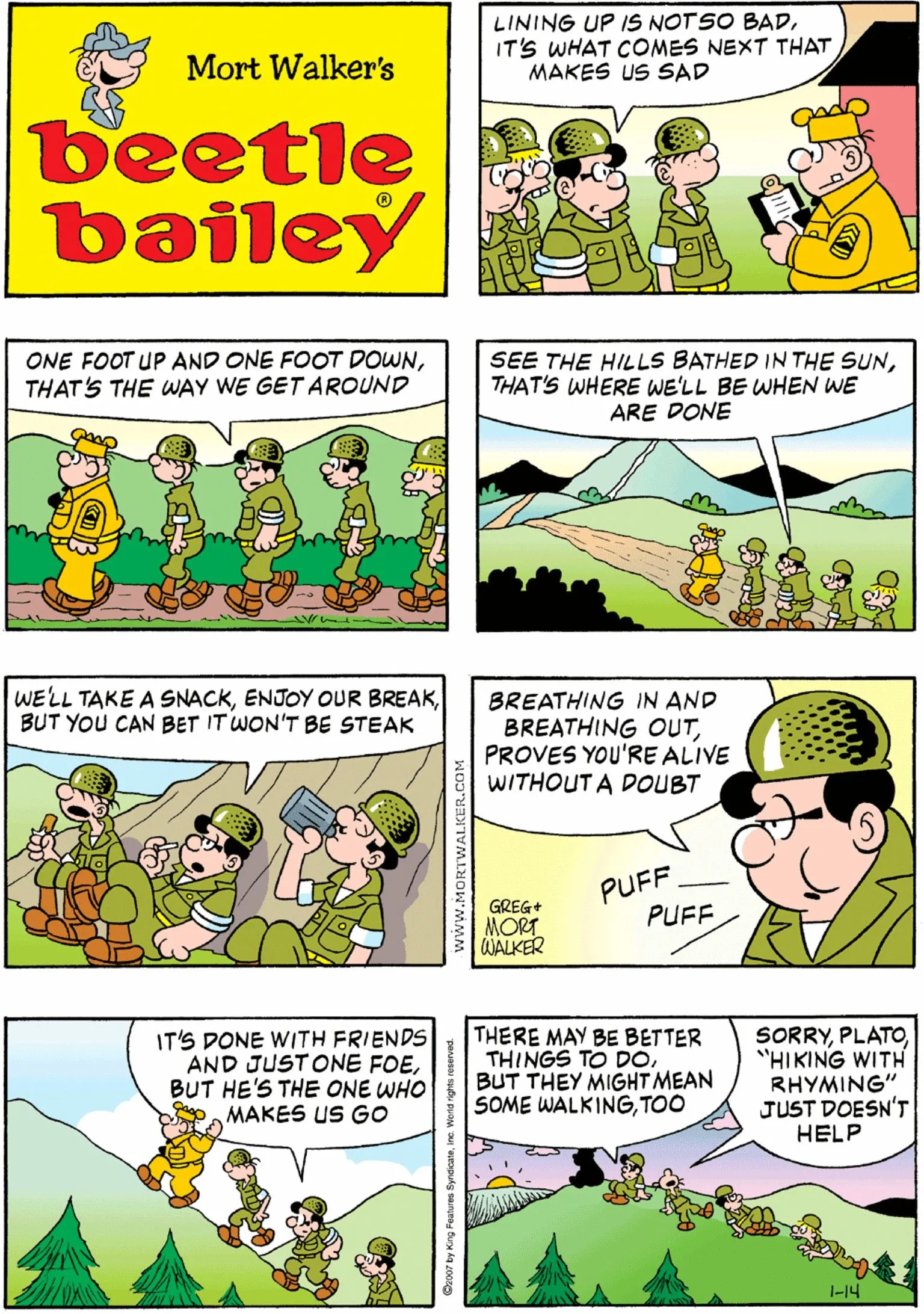
Beetle Bailey, the iconic character from Mort Walker’s celebrated syndicated comic strip, was introduced to audiences just a month prior to the debut of Charlie Brown and the Peanuts Gang. Initially envisioned as a college student, Beetle quickly transitioned into military life, serving as a private stationed at the notoriously comedic Camp Swampy, known as the most unreliable outpost in the U.S. Army.
Throughout its run, Beetle Bailey manages to maintain a comedic yet respectful portrayal of military life, delivering a humorous perspective on the monotony and absurdity of being a soldier. This unique angle did not go unnoticed, prompting the U.S. Army to issue a ban on the strip early on—a move that, paradoxically, enhanced the comic’s popularity among readers, both military and civilian.
10
“Someone With the Gumption to Speak Up”
First Published: March 25, 1955

In one of the early strips, Beetle’s commanding officer, Sergeant Snorkel, offers his recruits an opportunity to voice their grievances. Beetle, still trying to adjust to military protocol, steps up as the sole recruit bold enough to speak out, quickly landing himself in the undesirable position of potato-peeling duty. This incident epitomizes the ongoing conflict between individuality and the strictures of military life, a recurring theme that has resonated with audiences for decades.
9
“That’s Camp Swampy, Sir”
First Published: April 23, 1955

In another humorous instance, Sgt. Snorkel frantically assigns Beetle and his fellow recruits the task of readying the barracks for inspection by a high-ranking official, “the Pentagon General.”However, the punchline arrives when the General chooses to overlook Camp Swampy from his airplane, passing it by with disinterest, which cleverly satirizes the disconnect between high command and the enlisted personnel.
8
“If They Just Didn’t Give Us All This Work to Do”
First Published: September 8, 1958

This comic strip captures the relatable sentiment of Beetle and his fellow private lamenting that their Army duties would actually be enjoyable if not for the burden of constant work. Creator Mort Walker’s insightful commentary allowed Beetle Bailey to resonate even during active military engagements, highlighting the oft-overlooked fact that military service can closely resemble any other job, albeit with stricter regulations.
7
“Start By Cutting Down on the Men’s Food Rations”
First Published: October 28, 1960

This particular strip uses humor to shed light on the absurdities of military bureaucracy. As General Halfrack comfortably suggests cutting food rations for the troops while lounging in his lavish office, it reflects the all-too-common disparity between those in command and the soldiers under their direction. This juxtaposition feeds into the army’s earlier unease regarding the cartoon’s portrayal of authority.
6
“I Haven’t Accomplished a Durn Burn Thing”
First Published: July 22, 1962

This cartoon, featuring Sgt. Snorkel, touches on the relatable experience of feeling aimless and unproductive after long periods in service. Snorkel’s introspection about his lack of accomplishments during his downtime resonates strongly with both military and civilian audiences alike, emphasizing the universal struggle to find fulfillment outside of work.
5
“It Doesn’t Seem Fair…”
First Published: November 22, 1963

In this episode, a well-worn character named Pop becomes the unlikely center of attention when he provides an overwhelming list of excuses for missing a mandatory lecture by the general. Snorkel’s incredulous response—”It doesn’t seem fair” —reflects the absurdity of those in power dismissing the challenges faced by enlisted personnel, further emphasizing the comedic critique woven throughout the comic.
4
“It’s Part of the American Nature to Resist Authority”
First Published: June 21, 1964

This strip artfully encapsulates the recurring tension between the American spirit of rebellion and the discipline required in military service. As General Halfstack addresses a crowd of compliant soldiers, the lone dissenter holding a “nyah”sign serves as a hilarious yet poignant reminder of the often conflicting expectations placed upon service members.
3
“Ever Hear of Saluting It?”
First Published: April 6, 1965

In a clever twist, Beetle Bailey discovers a loophole in military protocol when he realizes he isn’t required to salute while on roller skates. Humorously dodging authority, Beetle’s antics remind readers of the sometimes whimsical nature of military rules juxtaposed against the rigid structure of the armed forces.
2
“Camp Swampy’s Rockets Blow Up All By Themselves!”
First Published: October 26, 1966

In a wry commentary on the U.S. arms race during the mid-1960s, General Halfstack laments that “Camp Swampy’s rockets blow up all by themselves,” humorously critiquing the state of military technology without needing external threats. This highlights the absurdity of prioritizing military spending amidst mismanagement, aligning Beetle Bailey with the growing counterculture sentiment of the era.
1
“One Foot Up and One Foot Down”
First Published: January 14, 2007

Fast-forwarding to 2007, this vibrant comic features Beetle and his platoon on a march, showcasing a side character, Private Plato, who entertains his squad with rhyming couplets. Over the decades, Beetle Bailey has cultivated a diverse cast, similar to the character development seen in Peanuts. This extensive portrayal illustrates the broad themes of camaraderie, absurdity, and the struggles of military life that have captivated readers for over seventy years.




Leave a Reply